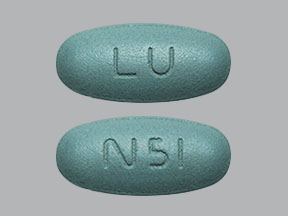Abacavir/lamivudine/zidovudine Interactions
There are 400 drugs known to interact with abacavir/lamivudine/zidovudine, along with 7 disease interactions, and 5 alcohol/food interactions. Of the total drug interactions, 53 are major, 308 are moderate, and 39 are minor.
- View all 400 medications that may interact with abacavir/lamivudine/zidovudine
- View abacavir/lamivudine/zidovudine alcohol/food interactions (5)
- View abacavir/lamivudine/zidovudine disease interactions (7)
Most frequently checked interactions
View interaction reports for abacavir / lamivudine / zidovudine and the medicines listed below.
- Clonidine ER (clonidine)
- Crestor (rosuvastatin)
- Dovonex (calcipotriene topical)
- Emtriva (emtricitabine)
- Flonase (fluticasone nasal)
- Glucosamine & Chondroitin with MSM (chondroitin / glucosamine / methylsulfonylmethane)
- High Potency B Complex with B12 and C (multivitamin)
- Humira (adalimumab)
- Kaletra (lopinavir / ritonavir)
- Lantus (insulin glargine)
- Lexiva (fosamprenavir)
- Naprosyn (naproxen)
- Nexium (esomeprazole)
- Novolog (insulin aspart)
- Pegasys (peginterferon alfa-2a)
- Singulair (montelukast)
- Thyrogen (thyrotropin alpha)
- Tri-Luma (fluocinolone / hydroquinone / tretinoin topical)
- Truvada (emtricitabine / tenofovir disoproxil)
- Viagra (sildenafil)
- Viread (tenofovir disoproxil)
Abacavir/lamivudine/zidovudine alcohol/food interactions
There are 5 alcohol/food interactions with abacavir / lamivudine / zidovudine.
Abacavir/lamivudine/zidovudine disease interactions
There are 7 disease interactions with abacavir / lamivudine / zidovudine which include:
- bone marrow suppression
- myopathy
- hepatitis B
- hepatotoxicity
- pancreatitis
- cardiovascular disease
- renal dysfunction
More about abacavir / lamivudine / zidovudine
- abacavir/lamivudine/zidovudine consumer information
- Compare alternatives
- Reviews (1)
- Drug images
- Side effects
- Dosage information
- During pregnancy
- Drug class: antiviral combinations
- En español
Related treatment guides
Drug Interaction Classification
| Highly clinically significant. Avoid combinations; the risk of the interaction outweighs the benefit. | |
| Moderately clinically significant. Usually avoid combinations; use it only under special circumstances. | |
| Minimally clinically significant. Minimize risk; assess risk and consider an alternative drug, take steps to circumvent the interaction risk and/or institute a monitoring plan. | |
| No interaction information available. |
See also:
Further information
Always consult your healthcare provider to ensure the information displayed on this page applies to your personal circumstances.


